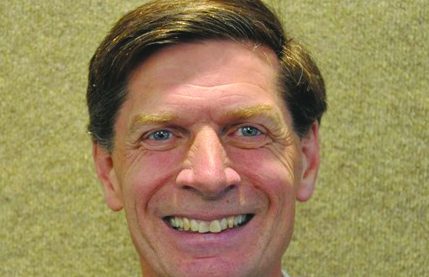Earley: Retraining our brains not to worry
Published 9:12 am Friday, May 24, 2019

- Al Earley
Jesus says in Matthew 6:25-27, “Therefore I tell you, do not worry about your life, what you will eat or drink; or about your body, what you will wear. Is not life more than food, and the body more than clothes? Look at the birds of the air; they do not sow or reap or store away in barns, and yet your heavenly Father feeds them. Are you not much more valuable than they? Can anyone of you by worrying add a single hour to your life?”
Sometimes we have much to worry about, but often we are worrying about things we cannot change.
Jewish psychiatrist and Holocaust survivor, Victor Frankl was in a surely stressful environment as he faced death daily.
Trending
He found surviving the concentration camp all revolved around faith. Those who could not accept what was happening to them, who could not make their present suffering fit with their faith, who could not find it’s meaning in their world view would fall into despair, lose hope and then they would give up and die.
Those individuals that could find meaning in the suffering through their faith were then able to find hope for the future beyond their present pain, and so could accept what they were enduring as a part of their existence, and they tended to be survivors.
He concludes, “We who lived in concentration camps can remember the men who walked through the huts comforting others, giving away their last piece of bread. They may have been few in number, but they offer sufficient proof that everything can be taken from a man but one thing, the last of the human freedoms, to choose one’s attitude in any given set of circumstances, to choose one’s way,” (from Man’s Search for Meaning by Victor Frankl).
There is a mathematical formula that helps us to understand the process letting go of stressful and worrisome situations, and giving them to God — stressor plus space equals effect.
The stressor is the event or experience we are going through with which we must deal. Space is our response to the stressor.
What we fill the space with will greatly influence the effect the stressor has on our life.
Trending
If we panic, stress out or worry, the effect will be much worse than if we pray, reflect on scripture, or try some breathing techniques to calm our soul.
It is helpful to understand how God has wired us to know why it is so hard to fill the space with constructive thoughts and actions.
If we use front brain thinking, then we will remain in a problem-solving mode and be able to think more clearly and stay relaxed.
If we tend toward back brain thinking when we face stress, then we are ready to decide whether to fight or flee, which is a crucial area of the brain to access when there is a tiger in the room. That is fine if there is a tiger in the room. It may not work so well otherwise.
Teaching our brain to shift from back brain to front brain thinking amid stress and anxiety can help us worry less and handle problems better.
When training to fly helicopters for the U.S. Army, the pilot must learn how to survive a helicopter crash. The safest solution is to bring the copter down in a body of water, but then the heavier blades will turn the craft upside-down, and it will sink 10 feet per second.
This sudden motion and shifting naturally cause the person to be disoriented and panic, and without training, they will drown inside the helicopter.
The Army teaches the pilot a series of simple moves one can execute even when upside-down and then teaches them which direction to move to exit the craft.
If you stay calm and execute the steps, you will not drown.
How can you learn to trust God more and worry less? We can train ourselves to use our front brain when that is the necessary part of the brain to use to survive a stressful situation.
The more we practice relaxing in everyday life (idiot drivers, rude clerks, lying co-workers, ungrateful children, busy spouse) the better prepared we will be to perform in the front brain in times of crisis, anxiety, stress and worry.
To find out more about Al Earley or read previous columns, see www.lagrangepres.com.





